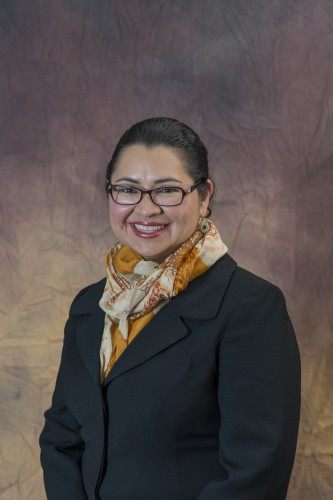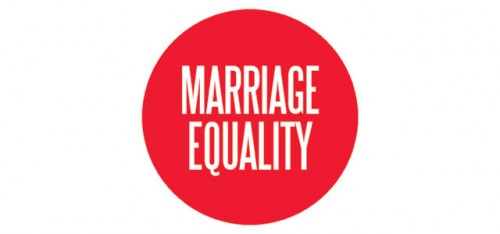By Eleonora di Liscia
Jacqueline Herrera Giron is the only Democrat running for 9th Ward Alderman in Waukegan. She is passionate about her city. She loves Waukegan and is proud of the city she grew up in.
“When I think of Waukegan, I think of opportunities. This is where my parents decided to create their home, to have a better future for their children, for me as an immigrant. For me, it’s a place of opportunity and of hard work. I see potential. There are hardworking citizens who live and care for Waukegan. I see their children going to school and aspiring to the same dreams I did when I first set foot here,” she said.
 Jacqueline is exceptionally well-qualified to serve Waukegan as an alderman. She joined her parents in Waukegan when she was seven years old and attended Lake Shore Catholic Academy and Waukegan East High School before graduating from Northern Illinois University. Then she taught first graders while attending law school at night, earning her law degree in 2003 from John Marshall Law School. After graduation, she worked in Chicago as an advocate for immigrant groups before returning to Waukegan.
Jacqueline is exceptionally well-qualified to serve Waukegan as an alderman. She joined her parents in Waukegan when she was seven years old and attended Lake Shore Catholic Academy and Waukegan East High School before graduating from Northern Illinois University. Then she taught first graders while attending law school at night, earning her law degree in 2003 from John Marshall Law School. After graduation, she worked in Chicago as an advocate for immigrant groups before returning to Waukegan.
Most recently, Jacqueline served as director of the Fr. Gary Graf Immigrant Center, Most Blessed Trinity Church. After ten years working for nonprofit organizations, she has now started her own immigration law practice in Waukegan.
“Waukegan is home for me, and I think when you love a place and you identify it as your home, you work for it in a different manner. You work for it with passion and respect, and you look out for its best interests. I think that’s important in the way you approach what you do for the city where you live,” Jacqueline said.
Jacqueline says she learned her Democratic values in Waukegan, as well as “how to be a volunteer, how to knock on doors to participate in democracy.” To that end, Jacqueline has volunteered at her church and at a local hospital. She has served on several nonprofit boards including Center for United Workers, United States Leadership Conference, and Lake County United. She now serves as president of the Waukegan Public Library Board and is proud that the library was recently awarded the National Medal from the Institute of Museum and Library Services.
Jacqueline is a proven leader. Her ten years of experience with nonprofits and her training as an attorney provide her with qualifications that neither the current City Council nor her opponents possess. Her nonprofit experience entailed scrutinizing budgets to cut expenses while maintaining services and creatively seeking new sources of funding. As an attorney, she can more readily interpret the codes and ordinances that the city enacts and find creative solutions to the city’s problems. Jacqueline also has the rare gift of bridging differences which would allow her to help the city council reach consensus on many of the difficult issues facing Waukegan. And as a Latina, Jacqueline understands the issues that affect the many minority groups in this diverse community.
If elected alderman, Jacqueline would focus on building the revenue base “because as homeowners we’re feeling the pain in our pocket because our taxes are going up. There needs to be more work in the development of Waukegan, especially in the 9th ward, so that businesses will come and stay for the long term and invest,” she said.
Jacqueline would also strive to foster the relationship between the city and the school board, in order to facilitate “graduating students at a higher percentage with the skills to attract more businesses and to have a good work force available,” she said.
Jacqueline also wants to make sure that budget priorities don’t threaten public safety. The city was recently forced to cut the neighborhood watch program.
Jacqueline Herrera Giron has the background, experience, and values that Waukegan needs in an alderman. If you can help elect Jacqueline Herrera Giron as 9th Ward Alderman on April 7, you can contact her campaign at jacklynehegiron@gmail.com or visit her website at www.jackiefor9thward.com.
Translated into Spanish by Jacqueline Herrera Giron
Jacqueline Herrera Giron está postulándose para el Concilio del 9 distrito de Waukegan. Ella se apasiona por Waukegan y está muy orgullosa que se crio en esta ciudad.
Jacqueline dice, “Cuando pienso en Waukegan, pienso en las oportunidades. Este lugar es adonde mis padres crearon su hogar, para un mejor futuro por sus hijos, y yo como inmigrante. Este lugar significa oportunidad y trabajar duro. Yo veo potencial. Aquí hay muchas personas trabajadoras que viven y se preocupan por Waukegan. Yo veo a sus hijos que van a la escuela y aspiran a los mismos sueños que yo tuvo cuando puse un pie en este país.”
Jacqueline es muy calificada y una líder excepcional para ser concejal de Waukegan. Ella se reunió con sus padres en Waukegan a la edad de siete años. Asistió a Lake Shore Catholic Academy y Waukegan East High School antes de graduar de Northern Illinois University. Después fue maestra de primer grado cuando estudiaba derecho por la noche y se graduó como abogada de John Marshall Law School en 2003. Después trabajo duro como defensora de inmigrantes en Chicago antes de regresar a Waukegan.
Recientemente, Jacqueline fue directora del Centro Padre Gary Graf, de la Iglesia Santísima Trinidad. Ahora después de 10 años trabajando para organizaciones sin fin de lucro a abierto su oficina para ejercer leyes de inmigración.
Jacqueline nos dice “Waukegan es mi hogar, y creo que cuando amas algo trabajas para ello en una manera diferente y con mucho amor y respeto. Buscas el mejor interés para la comunidad porque lo quieres.”
Jacqueline dice que ella aprendió sus valores Democráticos en Waukegan, y también “como ser voluntaria, ayudar al prójimo y participar cívicamente en la democracia.” Jacqueline ha sido voluntaria de su iglesia, y comunidad. Ella ha participado en muchas organizaciones sin fin de lucro como Centro de Trabajadores Unidos, United States Leadership Conference, and Lake County United. Ahora es presidenta de la mesa ejecutiva de La Biblioteca de Waukegan y está muy orgullosa de su conocimiento por recibir la Medalla Nacional para Bibliotecas y Museos un mérito reconocido por la casa blanca.
Jacqueline ha probado ser una gran líder en nuestra comunidad. Sus 10 años de experiencia con organizaciones sin fines de lucro y su entrenamiento como abogada demuestra que Jacqueline posee las cualificaciones que necesita el concilió de la ciudad y que no tienen sus contrincantes. Su trabajo requería que ella detallada mente examinara los presupuestos y cortar gastos y al mismo tiempo mantener los servicios y creativamente buscar recursos para mantener los programas. Como abogada, ella puede interpretar códigos y ordenanzas que la ciudad implemente y buscar soluciones creativas para los problemas de la ciudad.
Jacqueline también posee un don de crear puentes cuando hay diferencias que le permitirán ayudar al concilio obtener consenso cuando la ciudad se enfrenta con decisiones difíciles. Jacqueline como Latina entiende los problemas que le afectan a una comunidad de minorías y tan diversa.
Si eligen a Jacqueline para el concilio ella se enfocara en buscar recursos para incrementar los ingresos “porque como dueña de casa yo también siento el dolor en mi bolsa cuando los impuestos suben.” Es necesario trabajar para tener más desarrolló en Waukegan, especialmente en el distrito 9 para que los negocios puedan invertir en nuestra comunidad por el largo plazo.
Jacqueline fomentara relaciones con la ciudad y la mesa ejecutiva escolar, dice que “a si todos trabajan para que haya un porcentaje alto de graduados a si poder atraer más negocios y tener trabajadores con habilidades disponibles.”
Jacqueline quiere asegurarse que las prioridades del presupuesto no ponen en peligro la seguridad del público. Ya que la ciudad acaba de cortar el programa comunitario de la policía.
Jacqueline Herrera Giron tiene la experiencia y los valores que Waukegan necesita en un concejal. Si tú puedes ayudar a elegir a Jacqueline Herrera Giron para Concejal del 9 distrito tu puedes contactar a su campana por correo electrónico a jacklynehegiron@gmail.com o su página web a www.jackiefor9thward.com.




